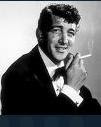EXCERPT: (Quoting Dewey) "All that has been said of the anti-clerical and atheistic tendencies of the Bolshevist is true enough. But the churches and their contents that were of artistic worth are not only intact, but taken care of with scrupulous and even scientific zeal. It is true that many have been converted into museums, but to all appearances there are still enough to meet the needs of would-be worshippers." [42-3]
No, you are not reading a clever updating of Swift's Modest Proposal. This is the most influential American philosopher of the twentieth century, and the single most influential man in the history of public education, whitewashing the Soviet crushing of religion as mere "atheistic tendencies," and admiring the violent confiscation of churches and art works on the grounds that the buildings and "their contents of artistic worth" are "intact," "taken care of," and "converted into museums." And take a moment to appreciate Dewey's dismissive swipe at persecuted believers as "would-be worshippers." He carries on, noting with stomach-turning delight that "The collections of ikons in museums in Leningrad and Moscow are an experience which repays the lover of art for a voyage to these cities." And how, we might ask, were the previous owners of these artifacts "repaid" for their involuntary contributions to Dewey's cultural voyage?
Thus far we have established only that the mature Dewey loved communism, and was prepared to say anything, no matter how vile or absurd, to defend the post-revolutionary Russia by which he so unconvincingly claims to have been delightfully surprised.
But what of the primary purpose of his visit, namely the examination of Stalinist Russia's educational establishment? Here, Dewey's enthusiastic rhetoric carries him into rhapsodies of self-revelation that shed the light of frankness on his often disingenuous and manipulative philosophical writings.
One cannot miss the personal pride with which Dewey admires Soviet education. Far from being a disinterested observer, Dewey had a vested interest in providing a favorable review of both the methods and the results of Soviet schools, for they were fundamentally his methods, and the results, therefore, evidence for or against Deweyism. He is therefore predisposed to see noble intentions and great success in every use of public schools for purposes of social control, government indoctrination, and the propagandistic undermining of mankind's moral, political, and rational heritage -- purposes that he himself advocates. Thus we get flourishes such as these:
"I have never seen anywhere in the world such a large proportion of intelligent, happy, and intelligently occupied children. [28]
For while a revival of interest in artistic production, literary, musical, plastic, is characteristic of progressive schools all over the world, there is no country, unless it be possibly Mexico, where the esthetic aim and quality so dominates all things educational as in Russia today. "[44-5]
Read here about the hero of the American left, who's teachings were used to destroy American education.
Subscribe to:
Post Comments (Atom)


























































No comments:
Post a Comment